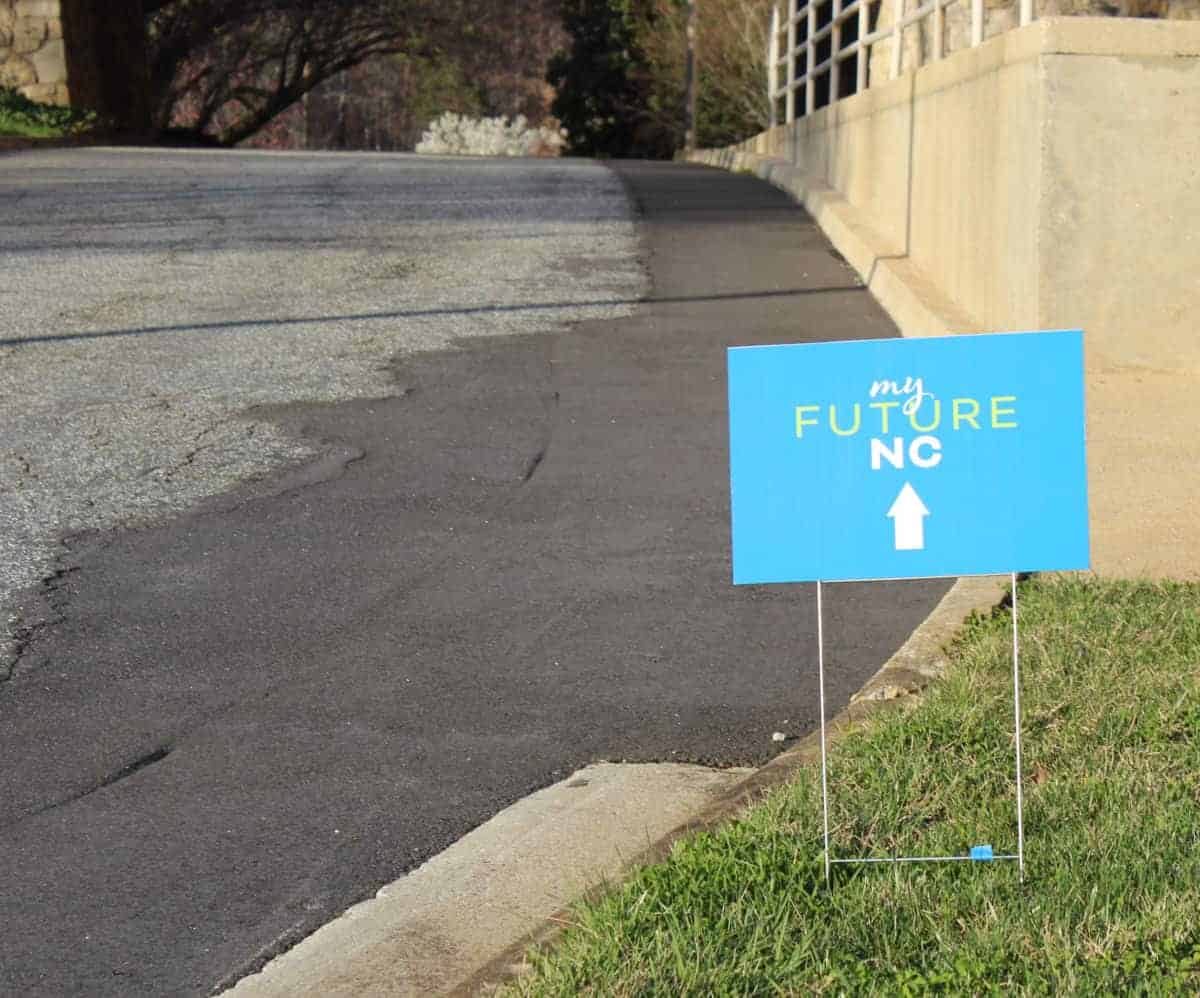On Oct. 4, the myFutureNC Commission convened in Asheville for the fourth of five meetings as it prepares to develop a postsecondary attainment goal for North Carolina. The Hunt Institute caught up with Commissioner David Mounts, Chairman and CEO of Inmar, Inc., to learn more about the ways in which a multi-year postsecondary attainment goal is good for the business community, and good for North Carolina.
1: What compelled you to join the myFutureNC Commission? In your opinion, what makes this effort to increase attainment so timely?
Inmar’s business is at the center of where businesses and society are headed. Technology and data analytics will touch every job, every life, and every community in some way. We must ensure that our children, whether they live in urban or rural areas, have the education needed to take care of their families, and help build our communities and state when they leave school. We need to do what we can to ensure that if someone works hard and keeps learning, they have the opportunity to participate in the growth and development created by a new economy. In my experience, collaboration is at the center of true transformation, and I believe I bring a perspective that can be helpful.
2: What are the most critical workforce development challenges facing North Carolina employers? What changes and improvements do CEOs and small business owners need from North Carolina’s education systems?
Every business is going through a digital transformation. Our systems, whether business, government or academia, must adapt. We cannot advance and compete under systems originally designed for an industrial economy. Institutions must figure out how to maximize productivity and efficacy. There are many things that technology, prediction machines, and robots can do more efficiently than people. This will drive advancement, and businesses will need highly skilled people to do what machines cannot. Businesses will seek people who know how to think creatively, problem-solve, and work with teams to take on problems and identify solutions that seem unimaginable. The state that offers the best access to that talent will attract business. I want North Carolina to be that state, so we must help our schools innovate to discover how best to deliver a competitive set of resources in a way that is cost-effective, competitive, and good for our state.
3: What promising strategies has Inmar utilized to strengthen recruitment, hiring, and professional development? How could those strategies be scaled statewide?
Educators and institutions cannot meet these needs alone – business must play a role and lead. I have made this a focus at Inmar through both long- and short-term efforts. We believe in actively investing in education to develop the skills needed in the years and decades to come.
- Inmar has worked to support higher education and research through our endowed Presidential Chair of Business Analytics at Wake Forest University and sponsorship of the WFU Center for Retail Innovation.
- We brought together all six Winston-Salem-based colleges and universities in 2017 in support of the entrepreneurial efforts of their students and alumni, pledging to incentivize entrepreneurship among their students and alumni through a series of programs based on their areas of focus and unique visions.
- Inmar’s intern program grows every year, offering college and university students career exploration and the opportunity to apply the skills they have learned in the classroom. They work as part of an Inmar team to network, attend community events, collaborate on service projects, and learn about our business. In 2018, 70 percent of our interns were offered positions upon graduation.
- This is no longer a time in which we earn a degree and believe we have finished our education. We established a team dedicated specifically to Learning and Development for our associates. They’ve created programs for on-site learning, guilds, tuition reimbursement for continuing education, online courses, job shadowing, and reimbursement for the cost of books.
- We know that diverse teams produce the best results, so Inmar’s Empowering Women group provides opportunities for associates to learn, network, grow, and serve in a group that focuses on empowerment and the value of diversity in the workplace.
- We have also worked to provide outreach through engagement with K-12 students in our community. Our Math Matters and Awesome Analytics programs, held at our headquarters in Winston-Salem, NC, bring in middle- and high-school students to demonstrate the importance of STEM proficiency. In conjunction with the NC FIRST robotics competition, Inmar sponsors “Girls on Fire,” an all-girl robotics team. Supported by Inmar mentors, this spirited group builds and tests their very own robot and then competes to deliver the best robot performance.
These programs can be scaled through the expansion of guilds and active engagement between colleges, universities, government, and individuals to build applied learning programs that are synced with the latest thinking and tools. These efforts can also be supported through more standardization at the pre-k through 12 level and use of an inquiry-based pedagogy. An increase in flexibility and modular programs will drive theoretical and applied collaboration between universities and enterprise.
Editor’s note: This perspective was first published by The Hunt Institute. It has been posted with the author’s permission.

